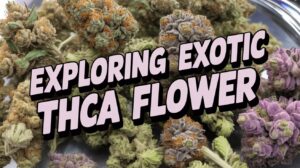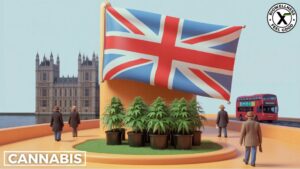In this guide, we’ll address a question that’s been making the rounds in the North Star State: “Is Delta-8 legal in Minnesota?.” But hey, no need for a boring legal lecture – we’re about to make this as easy a breeze. However, our journey doesn’t stop there. We’ll take you on a tour of marijuana legalization in Minnesota and the federal laws that govern hemp-derived Delta-8.
Plus, we’ll break down the crucial differences between Delta-8, Delta-9, and CBD – because knowledge is power.
And finally, we’ll also explore how Delta-8 affects your body, providing insights for safe and responsible use. And, of course, we’ll dish out the inside scoop on where you can legally score some Delta-8 THC in Minnesota.
So, buckle up because we’re about to unravel the Delta-8 mysteries of the North Star State!
Key Takeaways
- Delta-8 THC is legal in Minnesota as long as THC levels stay below 0.3% and it is derived from hemp.
- Minnesota has set limits on the total THC content in edibles and does not allow other cannabinoids like THC-O and THC-P in edibles.
- Minnesota legalized marijuana for adult use on August 1, 2023, allowing individuals to possess and grow cannabis.
- Understanding Federal laws, such as the Agriculture Improvement Act, is important when understanding the legality of delta-8 THC in Minnesota.
Legality of Delta-8 THC in Minnesota
Firstly, let’s get the obvious question out of the way, “is Delta-8 legal in Minnesota? The answer is YES! However, there are some regulations you need to know.
The State does allow hemp-derived Delta-8 products with no more than 0.3% Delta-9 THC concentration on a total dry weight basis. But there’s only one exception: edibles!
Minnesota set a limit on the total THC content in edibles – both Delta-9 THC and Delta-8 THC derived from hemp – to 5 mg per serving or 50 mg per package.
Now, Minnesota has some strict rules about other cannabinoids that are artificially derived, such as THC-O and THC-P. Simply put, these are not allowed in edibles. However, don’t let this discourage you. There’s still a green light for other hemp-derived goodies, including those with Delta-8 THC. Federal law, under the 2018 Farm Bill, supports this, making them legal both in Minnesota and across the country as long as the THC levels stay below 0.3%.
And here’s a fun fact for you: on March 30, 2023, Minnesota gave the thumbs-up to marijuana for adult use. This law will come into play on August 1, 2023. So, if you’re of age, you can enjoy the benefits of cannabis plants legally.
Looking for hemp-derived THC edibles that follow the state law, check our singles and two packs.
The History Of Delta-8 Legality In Minnesota:
In 2015, the Minnesota Hemp Research and Development Act marked a significant milestone, enabling hemp cultivation and processing in the state for research purposes. Consequently, it paved the way for the prospective legalization of Delta-8 THC.
The year 2016 witnessed the Minnesota Department of Agriculture (MDA) implementing regulations governing hemp cultivation and processing in the state. These regulations established stringent standards for both hemp production and testing, fortifying the safety and quality of hemp products.
In 2017, the passage of the Minnesota Hemp Farming Act allowed for the commercial cultivation and processing of hemp. This legal victory was instrumental in boosting Minnesota’s economy, creating job opportunities, and further supporting the local hemp industry.
In 2018, the federal landscape experienced a transformative shift when the 2018 Farm Bill was enacted, effectively legalizing hemp nationwide. This landmark achievement played a pivotal role in setting the stage for the future legalization of Delta-8 THC products.
Moving to 2019, the MDA took the initiative to regulate the commercial sale of hemp products in Minnesota. These regulations set forth exacting standards for product labeling and sales, ensuring responsible and safe distribution of hemp-based products.
In 2020, the passage of the Minnesota Hemp Food and Beverage Act facilitated the sale of hemp-derived THC food and beverages in the state, albeit with certain restrictions. This development opened up new prospects for businesses and consumers, underscoring its importance in the local hemp industry.
The year 2021 saw the MDA adopting comprehensive regulations governing the sale of hemp-derived THC food and beverages. These regulations covered various aspects, including labeling, manufacturing, and sales, bolstering the responsible and safe distribution of such products.
By 2022, a new Minnesota law came into effect, allowing the sale of hemp-derived THC food and beverages, including Delta-8 THC products, with specific THC limits per serving and package.
In 2023, a groundbreaking law was signed, legalizing adult possession, consumption, and cultivation of cannabis in Minnesota. This comprehensive legislation also established a regulatory framework for the cannabis industry, including the sale of Delta-8 THC products.
Fast forward to 2025, and Minnesota anticipates the opening of recreational marijuana dispensaries in the early part of the year. These dispensaries will offer Delta-8 THC products to the public, marking a significant milestone in the state’s cannabis industry.
Keep in mind, though, that while legalized hemp has opened up opportunities for cannabis companies to create a variety of hemp-derived products, the federal government, particularly the Drug Enforcement Administration, still keeps a close eye on controlled substances. This is why it’s vital to understand the Controlled Substances Act, the Agriculture Improvement Act, and other cannabis laws.
Federal Laws About Hemp-Derived Delta-8: Exploring the Farm Bill
Let’s chat about hemp-derived Delta-8, which has been a hot topic in recent years. It’s all thanks to the Farm Bill or, to give it its official name, the Agriculture Improvement Act. This act, passed back in 2018, gave a green light to the growth, production, and marketing of hemp and products derived from it, such as Delta-8 THC.
There’s a catch, though! The hemp plant or any hemp-derived cannabinoids, including Delta-8 THC, should contain only up to 0.3% Delta-9 THC when measured dry. This makes Delta-8 THC from the hemp plant federally legal, provided it adheres to the stated THC level.
Now, here’s the real-world implication of this law – while the federal government has given the go-ahead, it doesn’t mean it’s a free-for-all. The Farm Bill also empowers individual states to establish their own rules regarding hemp and hemp-derived items. So, what’s legal in one State may not be in another.
Take Minnesota, for instance. The laws surrounding Delta-8 could be different there. It’s critical, then, to familiarize yourself with the specific laws and regulations of each State.
In the broader context, this is a trend we’re seeing with many cannabis products. Legality can differ greatly depending on whether you’re looking at the federal level, local governments, or even outright bans.
As we move forward, the landscape of cannabis law and public health considerations will continue to evolve. It’s essential to stay informed, whether you’re consuming cannabis for medical conditions or simply interested in the booming world of cannabis companies.
Is Marijuana Legal in Minnesota?
So, you might be curious, ‘Is marijuana legal in Minnesota?’ Well, let’s unravel that mystery.
We already spilled the bean further up. Minnesota has indeed welcomed Delta-8, a cannabinoid derived from the hemp plant, into its legal circle. As of August 1, 2023, Minnesota Gov has given a thumbs up to recreational cannabis, joining an expanding list of states that have warmed up to the idea of legalizing marijuana.
Here’s a snapshot of Minnesota’s cannabis law:
- If you’re 21 or older, you’re allowed to carry and enjoy up to one ounce of cannabis in public spaces and as much as ten ounces in the comfort of your home.
- You can grow your mini cannabis plants garden with up to eight plants, but remember, only half of them can be fully grown at any one time.
- Planning to buy some cannabis products? The retail sale of recreational marijuana has already begun, with the first licensed dispensary opening for business a few months ago, serving as your only legal destination for purchasing cannabis products.
So yes, Minnesota has extended a friendly hand towards marijuana, acknowledging its potential boons and establishing regulations for its usage.
As we step into the future, the path of cannabis legality seems promising. However, it’s important to remember that the federal government, local governments, and public health authorities will continue to monitor its effects on society closely. After all, the goal is to balance the benefits of cannabis, such as treating medical conditions, while minimizing potential risks.
Comparing and Contrasting Relevant Cannabis Strains: Similarities and Differences of Delta-8, Delta-9, and CBD
Dipping our toes into the world of cannabis compounds, let’s get to know Delta-9 THC, Delta-8 THC, and CBD a bit better. Delta-8 THC, Delta-9 THC, and Cannabidiol (CBD) are three prominent cannabis strains that offer distinct effects and benefits. Understanding the similarities and differences between these strains is crucial in navigating the legal landscape and making informed choices.
Delta-8 THC and Delta-9 THC are both psychoactive compounds, but Delta-8 is famous for its milder effects and less intense high compared to Delta-9.
On the other hand, CBD is non-intoxicating and is the go-to for its health benefits without the “high”.
Delta-8 THC
Delta-8 THC is a cousin of Delta-9 THC, the infamous psychoactive compound in cannabis plants that triggers the iconic ‘high’. However, Delta-8 THC offers a less intense, more comfortable high. This amazing cannabinoid feels like an Indica, giving you the body euphoria without messing too much with your head, making it an attractive option if you want to enjoy the relaxation benefits of cannabis without the overwhelming effects.
On the flip side, CBD, short for cannabidiol, doesn’t give you a high at all. Instead, this compound is celebrated for its non-intoxicating potential health benefits. Studies show that it can help you alleviate inflammation and reduce your anxiety, making it a great option if you’re looking to treat medical conditions or simply enhance your overall well-being.
Let’s highlight the unique characteristics of these compounds:
- Delta-8 THC: Offers a mild high, making it a go-to for your chill and calming session.
- Delta-9 THC and Delta-8 THC: Both can help provide you relief from pain, stimulate your appetite, and give you some relaxation. However, Delta-8 THC generally provides a softer, more manageable effect, and many have started to enjoy it for things like sleep aids as well.
- CBD: Lacks the psychoactive traits of Delta-8 or Delta-9 THC but is revered for its potential remedial properties, including helping you deal with inflammation and manage anxiety.
Now, when it comes to the legal aspect, hemp-derived CBD is legal under federal law and most state laws. However, Delta-8 and Delta-9 vary by source and state, i.e., marijuana-sourced THCs are illegal federally and in most states.
Delta-9 THC
Delta-9 THC is the star player in cannabis and triggers those euphoric feelings often associated with cannabis. As it interacts with your brain’s reward system, it results in a dopamine release that gives you a sense of joy and relaxation.
Delta-9 THC doesn’t just stop at relaxation, oh no. It also stimulates your appetite, aids in improving your sleep, and provides you relief from discomfort. But, it’s essential to keep in mind that Delta-9 THC, especially when it comes from marijuana, dances on the edge of federal law.
To make this easier to grasp, let’s lay it out in a table:
| Compound | Source | Effects |
|---|---|---|
| Delta-8 THC | Hemp | Relaxation, discomfort (seems to help more than Delta-9,) appetite stimulation, betterment of sleep, moderate body high. |
| Delta-9 THC | Marijuana/Hemp | Joy, relaxation, appetite stimulation, sleep improvement, discomfort, potent cerebral high. |
| CBD | Hemp | Relaxation, mild discomfort, stress reduction, no high. |
From the table, we can observe that Delta-8 THC and Delta-9 THC share more in common regarding their effects than CBD does with either of them. comes evident that Delta-8 THC and Delta-9 THC have more similarities in their effects compared to CBD. Also, studies have shown that combining all three compounds may result in enhanced effects. Plus, the presence of CBD in the mixture reduces the psychoactive high produced by both Delta-8 and Delta-9, so if you are looking for a more mellow feeling, you might want to explore this cocktail.
Cannabidiol (CBD)
While CBD, Delta-8, and Delta-9 are all parts of the cannabis plant family, they each interact differently with the body’s endocannabinoid system. What sets CBD apart is that it doesn’t straight-up bind with the cannabinoid receptors like other cannabinoids; instead, it influences them through different channels, making its effects much smoother than THCs, for example, and doesn’t give you that ‘high’ feeling associated with Delta-8 and Delta-9 THC.
When we talk about the legal status of these compounds, it’s a bit of a mixed bag. CBD, due to its low THC content, has a more relaxed status throughout the United States.
It’s important to note that ongoing research is still exploring the full potential of CBD. So, who knows what other benefits we might discover in the future? It’s also worth mentioning that the Drug Enforcement Administration and other federal agencies are constantly reviewing cannabis law, so it’s essential to stay informed about any changes.
How Does Delta-8 Work in the Body: Interactions with the Endocannabinoid System
Let’s chat about how Delta-8 works within our bodies. According to studies, this intriguing compound interacts with our endocannabinoid system, specifically binding to CB1 and CB2 receptors. This interaction initiates a chemical reaction that influences neurotransmitter release and neuron activity.
Delta-8’s interaction with the CB1 receptor triggers a series of events that alter the brain’s neurotransmitter release. It can even ramp up neuron excitement! This domino effect can numb certain neurons, particularly those that signal pain, stress, sleep, and hunger. So, what does that mean? It means that the way Delta-8 works its magic can help your body lower its stress response, resulting in you kissing those anxious feelings goodbye! It also means that it can tell your body to ease up on those pain signals, giving your back and knees a break from that discomfort you feel.
The research observes that the interaction between Delta-8 and the endocannabinoid system can also help you catch some Zs.
In the end, the journey of Delta-8 within our bodies is not just about science. It’s about potential relief, wellness, and a future where natural alternatives are not just possible but accessible. It’s a fascinating world, isn’t it?
Tips for Safe and Proper Delta-8 THC Dosing
Delta-8’s benefits have got everybody hyped, but remember, with great benefits comes great responsibility, and with a wide array of hemp-derived edibles and other cannabis products on the market, it’s important to know how to enjoy it responsibly, avoiding possible side effects.
Now, let’s get to the heart of the matter – dosing Delta-8 THC. It’s a good idea to start small, perhaps with a meager 5mg. Patience is key here, my friend, as you need to allow it time to work its magic before you even think about upping the dose.
Remember, we’re all unique! What works wonders for your buddy might not do the trick for you. Factors like your personal tolerance and the method you choose to consume marijuana play a big role in determining your ideal dosage.
It’s crucial to consume Delta-8 responsibly, and that means not mixing it with substances such as alcohol or caffeine. And don’t forget to refer to a dosage chart for detailed guidance tailored to your needs.
Where to Legally Buy Delta-8 THC in Minnesota?
For those residing in Minnesota who are curious about where they can legally acquire Delta-8 THC, there are quite a few options. A multitude of physical dispensaries and digital shops specialize in products derived from hemp, including Delta-8 THC. One such online retailer is BioWellnessX, a veteran in the industry with more than a decade of experience. We’ve earned our stripes by offering a variety of products compliant with the Agriculture Improvement Act, more commonly known as the Farm Bill.
We at BioWellnessX have garnered an impressive collection of 5-star reviews from cannabis aficionados nationwide, and we even offer the convenience of delivering right to your doorstep. Among our top sellers are organic Delta-8 gummies, a favorite among beginners and seasoned users alike.
We encourage Minnesota residents to explore these options to find a dependable source for their Delta-8 THC needs.
We offer multiple solutions that align with the State’s laws. If you’re unsure about which product to choose, feel free to give us a call. Our team is always available to assist you.
Final Thoughts: Is Delta-8 THC Legal in Minnesota?
In conclusion, Minnesota has given the green light to Delta-8 THC, but they’ve added some friendly regulations to keep things in check. To put it simply, if you’re into Delta-8 products, they should come from hemp and not have more than 0.3% THC of any form, except for edibles! Presently, the state sets a 5 mg THC limit per serving for those tasty edibles, and any single pack of THC-infused treats should keep it under 50 mg of THC.
However, there are ongoing debates and possible changes in the laws that might shake things up. So, it’s essential to stay in the loop and play by the rules when you’re thinking about getting your hands on some Delta-8 THC in Minnesota.

Brand new to Delta-8? First time trying us? Get a free Delta-8 sample on us.
Legal Disclaimer:
By reading this information presented, you agree to release the author of any liability that comes from using this data. This post contains no legal advice. Claims about cannabinoids have not yet been approved by the FDA. Read the full legal disclaimer here.
Other Related Articles About Delta-8 THC
- Delta-8 vs. Delta-10 For Pain: Which Works The Best?
- Organic 50mg Delta-8 Gummies: Benefits and Effects
- 100mg Delta-8 THC Gummies Review From BioWellnessX
- Indica vs Sativa Edibles: What’s the Difference?
- Delta 8 Edibles Review And Where to Buy Them!
- Is Delta-8 or CBD Better For Pain? The Top 5 Differences!
- Delta-8 THC Near Me: Best Places To Buy Delta-8 Products!
- Delta-8 THC Delivery – How To Easily Get Your Delta-8 Delivered!
Curious About Minnesota’s Surrounding State Laws?
References:
- Minnesota’s legislation on hemp and hemp-derived cannabinoids
- Minnesota Industrial Hemp Plan
- Minnesota legalization of cannabis HF 100
Other Topics That You Might Be Interested In:
- Can you buy Delta-10 in Minnesota?
- Buy THCA flower wholesale in Minnesota.
- Where to buy THCp gummies in Minnesota.
FAQs About Delta-8 and Legality
Studies and user reports show that Delta-8 THC shows that Delta-8 could help ease your anxiety, relieve your discomfort, and stimulate your appetite, amongst many other benefits.
Delta-8 THC can cause side effects such as dry mouth, red eyes, increased heart rate, impaired coordination, and anxiety. It is important to consult with a healthcare professional before using Delta-8 THC if you’re using prescription medication.
Only adults aged 21 and above can legally purchase cannabis products.
Drug tests can detect Delta-8 THC due to its similarity to Delta-9 THC. It is important to note that drug testing methods may vary. If you’re expecting a drug test, we would advise you to stay away from THC products for 90 days prior to the test.
Minnesota allows the use of Delta-8 THC for medical and recreational purposes for now as long as it has less than 0.3% THC. This might change in the future, so keep an eye out for legal updates.
Fun Facts About the State of Minnesota
- Land of 10,000 Lakes: Minnesota is famous as the “Land of 10,000 Lakes,” but it actually has over 11,800 lakes. The state’s abundance of freshwater bodies makes it a paradise for water enthusiasts.
- Birthplace of the Mall of America: The Mall of America in Bloomington is the largest shopping mall in the United States. The mall features over 5.6 million square feet of retail space, an indoor amusement park, an aquarium, and much more.
- Home of the Legendary Prince: The iconic musician Prince was born and raised in Minnesota. His Paisley Park estate, located in Chanhassen, has become a popular destination for fans.
- Invention of Scotch Tape: The famous 3M company, headquartered in St. Paul, Minnesota, invented Scotch Tape in 1925. The “Scotch” name was derived from the colloquial term for “frugal” that was associated with the company’s founders.
- Snow Sculpture Capital: The small town of Spicer, Minnesota, hosts an annual winter festival called “Winterfest” where teams compete to create intricate snow sculptures. It’s a delightful celebration of winter artistry.
- Largest Ball of Twine: Darwin, Minnesota, is home to the world’s largest ball of twine created by a single person. The giant twine ball weighs over 17,000 pounds and continues to grow.
- Birthplace of the Bundt Cake: The Bundt cake, a popular dessert in the United States, was created in Minnesota by Nordic Ware. The company’s bundt pans have been a staple in kitchens since the 1950s.
- Ice Fishing Capital: Given its frigid winters, Minnesota is often considered the ice fishing capital of the United States. Thousands of people gather on the frozen lakes each year, making it a significant winter pastime.








